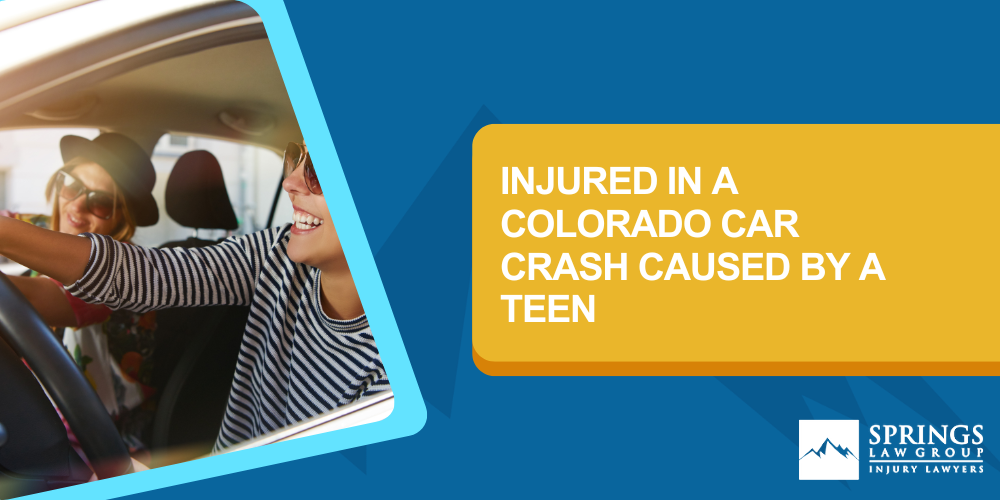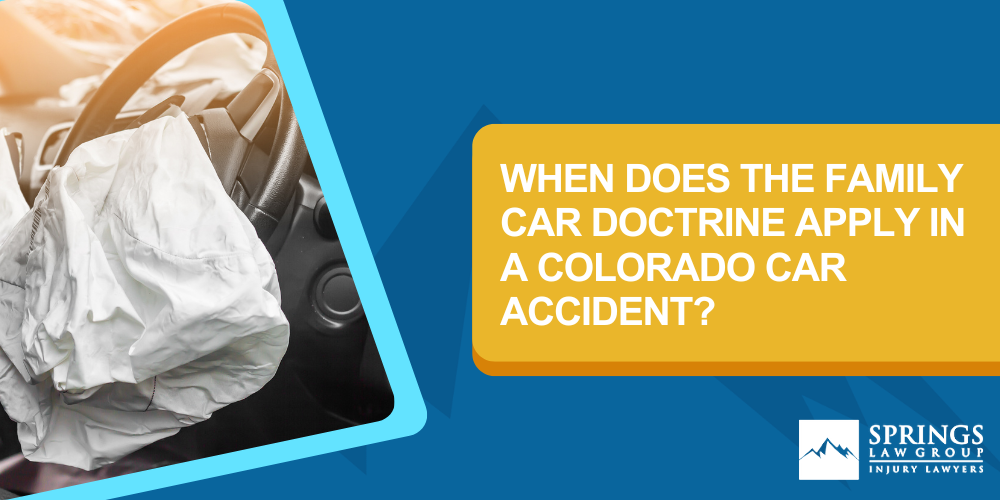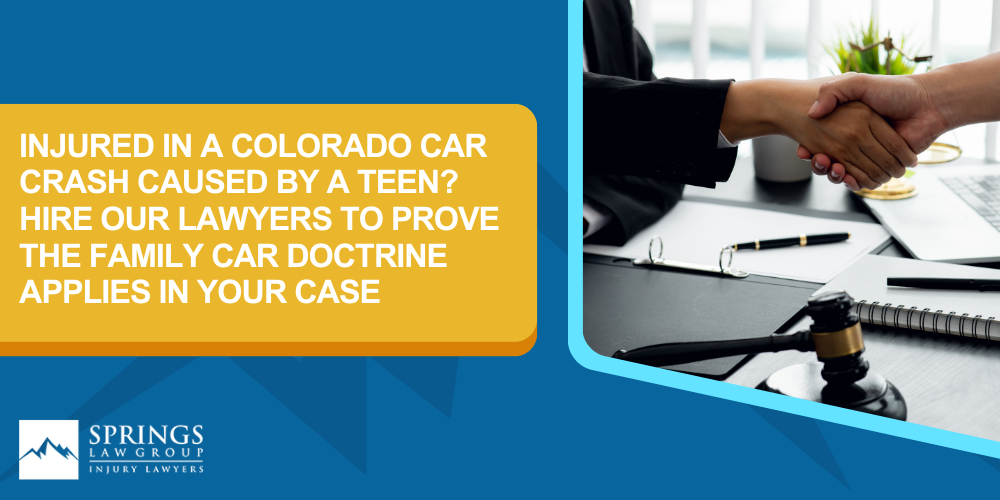Injured in a Colorado Car Crash Caused by a Teen

When Does the Family Car Doctrine Apply in a Colorado Car Accident?
The “family car doctrine” has many requirements that must be established before the victim of a Colorado car crash and impose liability on an individual other than the driver of a motor vehicle. The purpose is, however, to ensure victims of a motor vehicle accident have some recourse against individuals who maintain, possess, or control the use of a motor vehicle in a household. But the doctrine strikes a balance of fairness in ensuring that merely owning a vehicle does not create unfair liability for a defendant.

Generally, in order to establish entitlement to the family car doctrine against a non-driver, a plaintiff will be required to generally establish that:
- the non-driver was the head of the household in which the at-fault driver was a member;
- the vehicle was used with the express or implied permission of the individual;
- the non-driver owns or has control over the vehicle;
- the driver was negligent in operating the vehicle; and
- the driver’s negligence caused damages to the plaintiff.
For example, if the individual is the father and the driver was a teenage son who caused a Colorado car crash injuring you, there are five elements you must prove in order to be entitled to compensation from the father. Generally, the elements of express or implied permission from the father to the son-driver, that the son-driver was negligent, and that the subject accident caused injuries to plaintiff, are the most disputed elements.
Injured in a Colorado Car Crash Caused by a Teen? Hire Our Lawyers to Prove the Family Car Doctrine Applies in Your Case
Most of us were once teenagers learning to drive a motor vehicle. And we may have all made mistakes. But not all of our mistakes caused personal injuries which affect a person’s entire life. These types of mistakes are compensable under Colorado law. Unfortunately, many teenagers may be considered “judgment proof” and unable to compensate you fully for your injuries. The purpose of the family car doctrine is to ensure that the injured person gets just compensation, whether that comes from the at-fault driver, the driver’s head of household, or both.

If this scenario sounds familiar to you, the family car doctrine may allow you to get the compensation you deserve for your pain and suffering, lost wages, medical bills, and other expenses. Call Springs Law Group to learn how our Colorado car crash lawyers can help you recover compensation for the person or persons who gave that vehicle to their teenager and caused your personal injuries. You can call us at (719) 421-7141, or use the convenient and easy to use “Get Help Now” submission box available here. We can help walk you through the process, together, and help you get on the road to recovery. Call today to schedule a FREE consultation.
